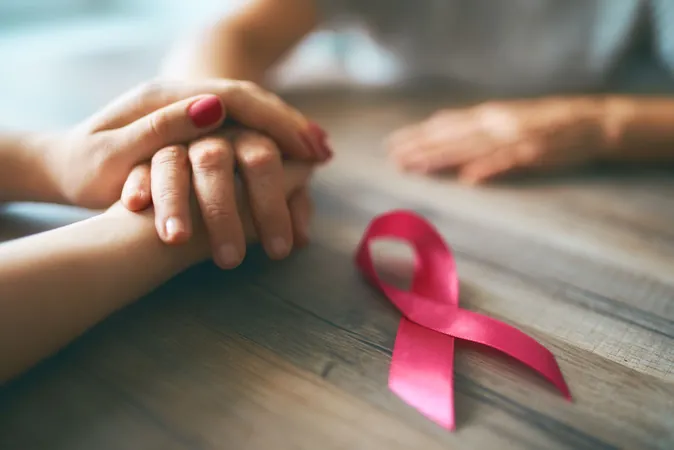
Shocking Study Reveals Key Influencers on the Quality of Life for Young Breast Cancer Survivors and Their Families!
2024-11-18
Author: Daniel
In a groundbreaking study published in *Cancer Medicine*, researchers have uncovered startling insights into the quality of life (QOL) for young breast cancer survivors (YBCS), revealing that they often face a poorer QOL compared to older survivors and even age-matched peers without a cancer history. This study highlights the critical need for understanding the long-term effects of cancer on both survivors and their families.
The authors meticulously analyzed baseline data and an 18-month follow-up from a randomized controlled trial, focusing on genetic awareness in familial contexts. The study drew from a comprehensive sample of 3,000 YBCS affiliated with the Michigan Cancer Surveillance Program, inviting both YBCS and their first- or second-degree female relatives to participate. Ultimately, 883 individuals joined, with the study focusing on 189 dyadic family units (one YBCS and one relative) and 121 triadic units (one YBCS and two relatives).
An impressive majority of the relatives included were first-degree connections, such as sisters and daughters, which underscores familial proximity in supporting survivors.
The researchers utilized the Short-Form Health Survey (SF-12) to evaluate both physical and mental QOL at the start of the study and at the follow-up. The results spoke volumes: at the outset, YBCS reported a significantly lower average physical QOL score (48.7) compared to their relatives (51.5), although their mental QOL scores were comparable (48.7 vs. 49.2).
One of the most striking findings is the correlation between the age of YBCS and their physical QOL improvements. The study noted that older survivors tended to possess better physical QOL outcomes when compared to younger relatives, revealing a complex relationship between age, support systems, and survivorship. Notably, financial constraints and mental well-being factors such as history of anxiety also played vital roles in predicting physical QOL.
The researchers highlighted that several factors could lead to improved mental and physical well-being over time. For example, being married or in a committed relationship was shown to significantly enhance mental QOL in these survivors. Interestingly, the longer the time since a YBCS's cancer diagnosis, the better the mental health outcome for older relatives, indicating a positive trajectory in coping mechanisms over time.
However, the study warns of the potential negative impacts of fear surrounding cancer recurrence, particularly among younger relatives, which serves as a stark reminder of the psychological burdens that linger long after the physical battle has ended.
The authors of the study expressed the need for further research into broader family dynamics by engaging larger family units to grasp a more comprehensive understanding of the survivorship experience. They believe that exploring these interconnected relationships can yield insights into effective support networks and resources for YBCS and their families.
With cancer survival rates improving, the necessity for continuous support and understanding of the emotional toll on survivors and their loved ones is more crucial than ever. This striking research paves the way for future studies dedicated to uncovering the latent challenges faced by young breast cancer survivors and offers a call to action for better support and awareness in shaping their quality of life.
Stay tuned for more updates on health research breakthroughs that can transform lives!


 Brasil (PT)
Brasil (PT)
 Canada (EN)
Canada (EN)
 Chile (ES)
Chile (ES)
 España (ES)
España (ES)
 France (FR)
France (FR)
 Hong Kong (EN)
Hong Kong (EN)
 Italia (IT)
Italia (IT)
 日本 (JA)
日本 (JA)
 Magyarország (HU)
Magyarország (HU)
 Norge (NO)
Norge (NO)
 Polska (PL)
Polska (PL)
 Schweiz (DE)
Schweiz (DE)
 Singapore (EN)
Singapore (EN)
 Sverige (SV)
Sverige (SV)
 Suomi (FI)
Suomi (FI)
 Türkiye (TR)
Türkiye (TR)